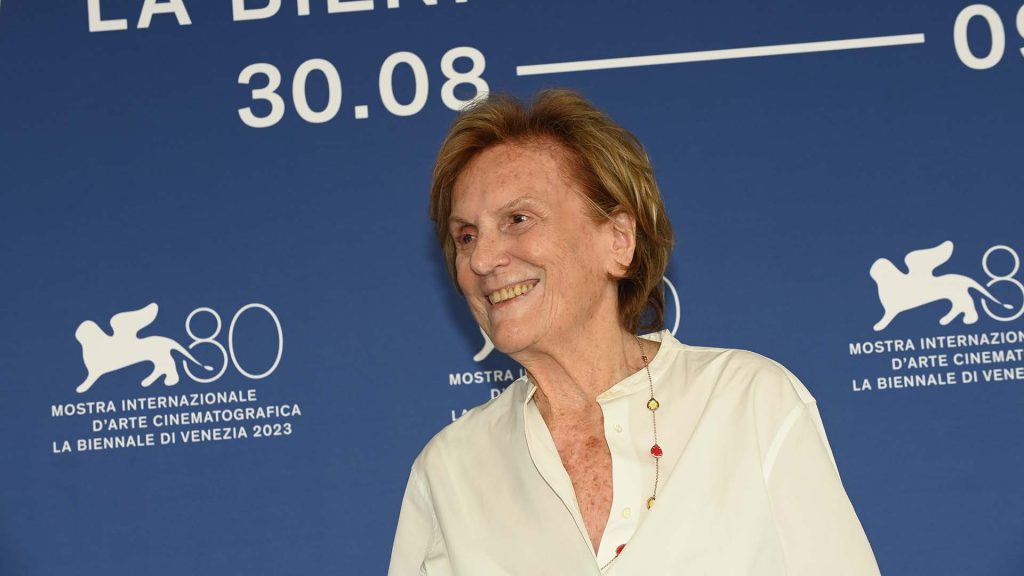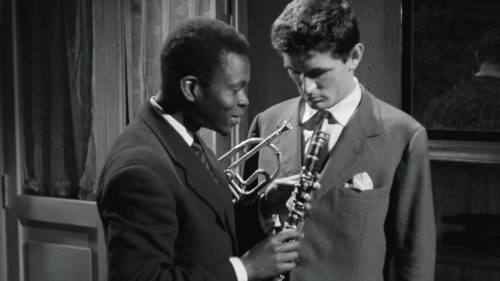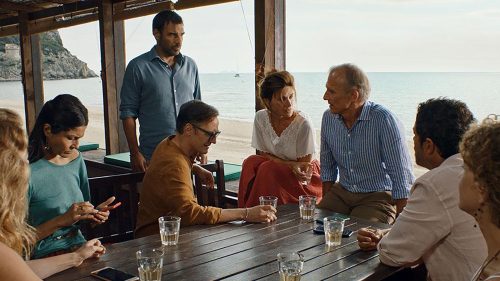
Veteran Italian filmmaker Liliana Cavani has been awarded the Golden Lion for Lifetime Achievement at the Venice Film Festival. “One of the most prominent actors in the new Italian cinema trend of the 1960s, her work accompanied sixty years of showbiz history […] Her art is non-conformist, free of ideological prejudice” said Alberto Barbera, the director of the VFF.
Out of competition, Cavanis presented her latest feature, L’ordine del tempo, a free adaptation of Carlo Rovelli’s novel of the same name. The story follows a group of friends spending some free time at a seaside villa who learn that the world is soon coming to an end. From that moment, the time that separates them from the end will flow at different speeds, quick and eternal, over a summer’s night that will change their lives forever.

Liliana Cavani is an Italian filmmaker born in 1933. In 2012, she was awarded an honorary David di Donatello. Called by many ‘a living paradox’, her filmography won’t appeal to just about anyone, and occasionally proved scandalous for prudish Italy if a few d...

A group of longtime friends meet at a seaside villa to celebrate the birthday of one of them. While partying, the friends learn of a horrifying piece of news: the world as they know it might come to an end in the matter of hours. The time of the apocalypse feels different now,...
Liliana Cavani creates a film dedicated to the great scientist, shifting the focus from individual roles to the issues of dialogue and social conflict that science can bring with it. It serves as an indictment against the arrogance of power in an era where scientific issues increasingly become social and, thus, political factors. Her Galileo becomes – as Cavani suggests – an emblem of the great clash between the freedom of scientific research and the dictates imposed by the Church. As highlighted in the film, the scientist sought to avoid this clash by proposing the theory of two languages: one scientific, with which research on nature can be described, and one of faith, which can be used to speak of God.
A modern Antigone knows where her rebellious brother’s body lies, but no one is willing to help her except for a young foreigner, Tiresias, who collaborates with Antigone to retrieve the body and ensure its burial. Cavani’s work recreates the Greek tragedy, placing it in a real city where a conforming police state, in the dramatic representation, resembles certain dictatorial experiences of the 1970s. The bodies of the slain rebels are left in the city streets, in squares, on sidewalks, and by government order, they cannot be touched or moved.
Perhaps her most important and universally known work, which scandalized part of the critics and the public upon its release. The plot unfolds in 1957 in a sumptuous and decadent Vienna, resembling a grand stage set up by former Nazi criminals to conceal their past. The film offers a profound reflection on the concept of evil seen as an inevitable condition, naturally generated by the horrors of war and the actions of Nazism and fascism, a general state in which everyone, without exception, finds themselves living and interacting with others. Against this backdrop is the investigation of power, closely linked to evil and the possibility of exercising it.
In Rome, in 1882, in a hotel on Piazza della Minerva, Paul Rée leaves his friend Fritz, Friedrich Nietzsche, amid prostitutes and opium smoke to attend a party where he meets Lou Salomé, a young Russian-Jewish woman. The nonconformist girl, accepting a romantic relationship with Paul, counters his marriage proposal with the scandalous proposal of a ménage à trois with Fritz. The real subject of the film is the questions posed to free individuals due to the correlations of their way of life. Psychological correlations, first and foremost, as the resistances and obstacles primarily come from the individuals themselves. Lou Salomé was a woman who believed it was possible to live with two men, a free woman in the best sense of the expression.
The film based on Curzio Malaparte’s book takes on the importance of a visceral and desperate portrayal of Italy in 1944, a divided country at the mercy of both allies and oppressors. Marcello Mastroianni plays the lead role as the writer, accompanied by Claudia Cardinale and Burt Lancaster. It speaks of physical and mental ruins, dusty and emotional. It’s called The Skin because it’s the only thing that can still be tried to be saved by resorting to baseness: not the soul, honor, or freedom, but the “filthy skin”.